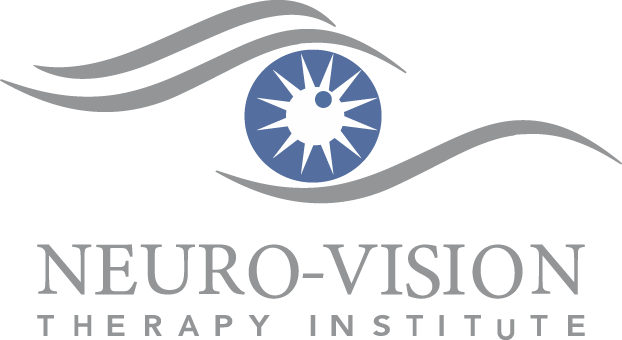The difference between a Neuro-Optometrist and Neuro-Ophthalmologist
The profession of optometry and ophthalmology are often used interchangeably. Before understanding the differences between the specialties of Neuro-Optometry and Neuro-Ophthalmology, it is important to first understand the difference between an optometrist and an ophthalmologist. First, both of these professionals are doctors that treat vision-related disorders and both have extensive training. An ophthalmologist has attended medical school and has earned the denotation of M.D. (Doctor of Medicine). Following four years of medical school, they attend two to three years of residency to specialize in ophthalmology.
On the other hand, an optometrist has attended optometry school and has earned the denotation of O.D. (Doctor of Optometry). Optometry school is a total of four years following undergraduate studies. Optometrists do not typically prescribe oral medications and do not perform surgery. However, optometrists have an additional one to two years of training over ophthalmologists specifically in vision care, and are just as educated on ocular health, ocular anatomy, and treatment of all vision conditions.
Both of these professionals can prescribe contact lenses and glasses. Both also can check the health of the eye and the integrity of the eye-to-brain connection. Optometrists tend to focus on routine eye care and annual eye exams whereas ophthalmologists tend to focus on ocular disease and infection management, ocular trauma, and surgery. Many optometrists and ophthalmologists work closely, even in the same practice, and co-manage patients together.
With a good handle on the similarities and differences between optometrists and ophthalmologists, let’s dive into the comparison between Neuro-Optometrists and Neuro-ophthalmologists. The term “neuro” refers to the human body’s nervous system. The nervous system is the primary communicating and regulatory center that plays a role in motor and sensory function, memory and learning, and the body’s overall ability to survive. As such, both professional specialties are primarily concerned with how vision, the body’s dominant sense, is impacted by and supports a properly functioning nervous system, specifically the brain.
When it comes to a patient’s care and treatment, it is important to keep in mind a provider’s education, experience, and treatment modality. A Neuro-Optometrist has graduated from optometry school but is also often board-certified, or even double board-certified and has placed a special emphasis on treating a specific subset of patients beyond those that would typically just need an annual eye exam. These patients treated often include those that have suffered a traumatic brain injury, stroke, or another neurological insult. Furthermore, Neuro-Optometrists aim to holistically support their patients functioning as it pertains to a successful return to work, academics, and living a satisfying life in general. Neuro-Optometrists are able to utilize specialized glasses and prism prescriptions, tints and color filters, or most importantly, neuro-rehabilitation, to give the brain the tools it needs to re-organize and re-learn proper visual functioning.
Alternatively, Neuro-Ophthalmologists tend to prescribe medication or utilize surgery to treat vision problems that are related to brain function. A referral to a Neuro-Ophthalmologist may be appropriate in cases of optic neuritis, compressed optic neuropathy, suspected tumor, retinal damage, macular degeneration, or other systemic diseases affecting the eyes and brain. However, patients with traumatic brain injuries requiring rehabilitative therapy or functional lens prescriptions may not have all of their long-term goals addressed.


